a) 宝 (Bao) = Ho - Precious, Treasure and Cherish
b) 庆 (Qing) = Kyo Virtue, Auspicious and Congratulate
c) 记' (Ji) = Ki Record, Chronical and Notes
Therefore, Hokyo-Ji = Baoqing-Ji (宝庆记)!
Dogen studied in China between 1223-1227 CE - which was the time of the Southern Song Dynasty (1127-1279 CE). Emperor 'Lizong' (理宗) reigned between 1224-1264 CE. Dogen named this book after the first 'Era' of Lizong's reign which was termed 'Baoqing' (宝庆) - named after a house the emperor particularly favoured (a house of 'Cherished Virtue'). The ''Baoqing' (宝庆) Era measured three years of chronological time:
1) 1225 - Stem and Branch 'Yiyou' (乙酉)
2) 1226 - Stem and Branch 'Bingxu' (丙戌
3) 1227 - Stem and Branch 'Dinghai' (丁亥)
Dogen's text then, purports to record in writing the details of the experiences he encountered whilst traversing the Zhejiang area of East China, and the information he gathered for the years '1225'. '1226' and ''1227'. This is a significant observation as this book omits the first years of '1223' and '1224' of Dogen's visit to China and instead focuses upon his interaction with the Caodong Ch'an teacher - Master 'Tiantong Rujing' (1163-1228). Therefore, the Baoqing Record (宝庆记) is a manual of all the dialogues and interactions that occurred between Dogen and Master Rujing! It is the fruit of this communication through which Dogen attained to a genuine understanding of the empty essence of his mind! This is a remarkable outcome considering that when he first made port in Zhejiang - the Chinese Authorities required that he stay on his ship for three months whilst a question regarding his Buddhist Ordination was clarified (as his Entry Visa was dependent upon his credentials as a fully Ordained Buddhist monastic). Although he had taken the Bodhisattva Vows - he had not yet taken the Vinaya Discipline Vows - a situation which was eventually rectified and he was granted entry!
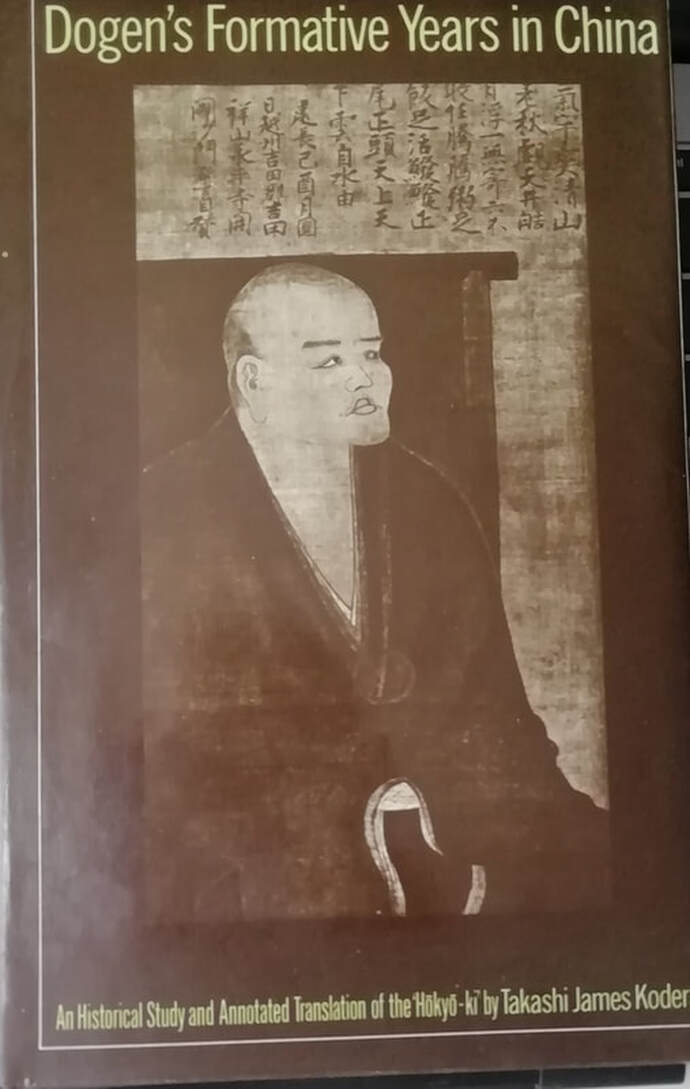
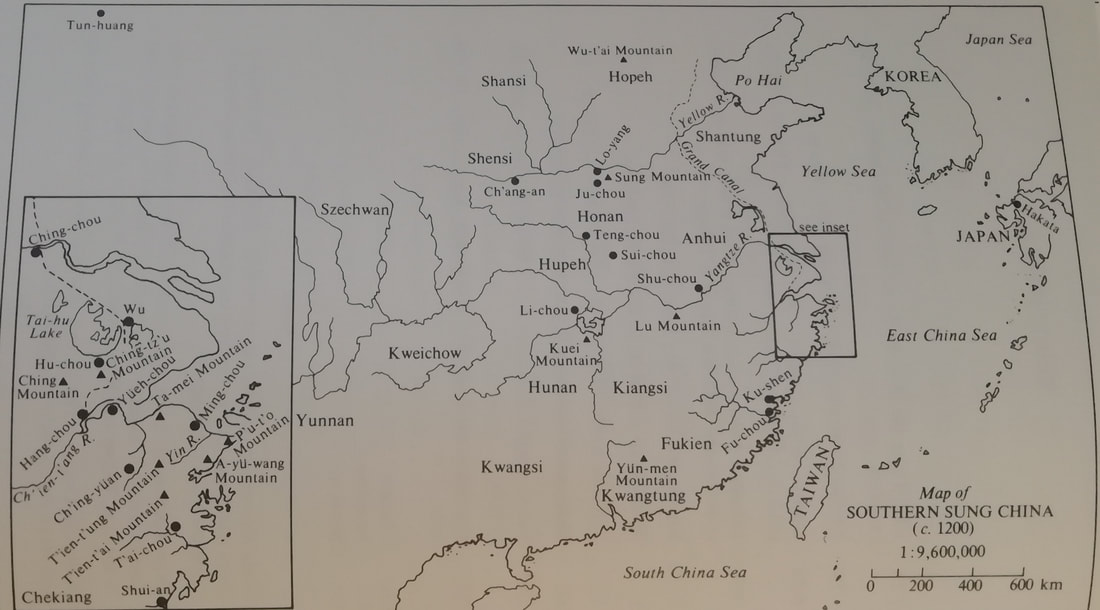
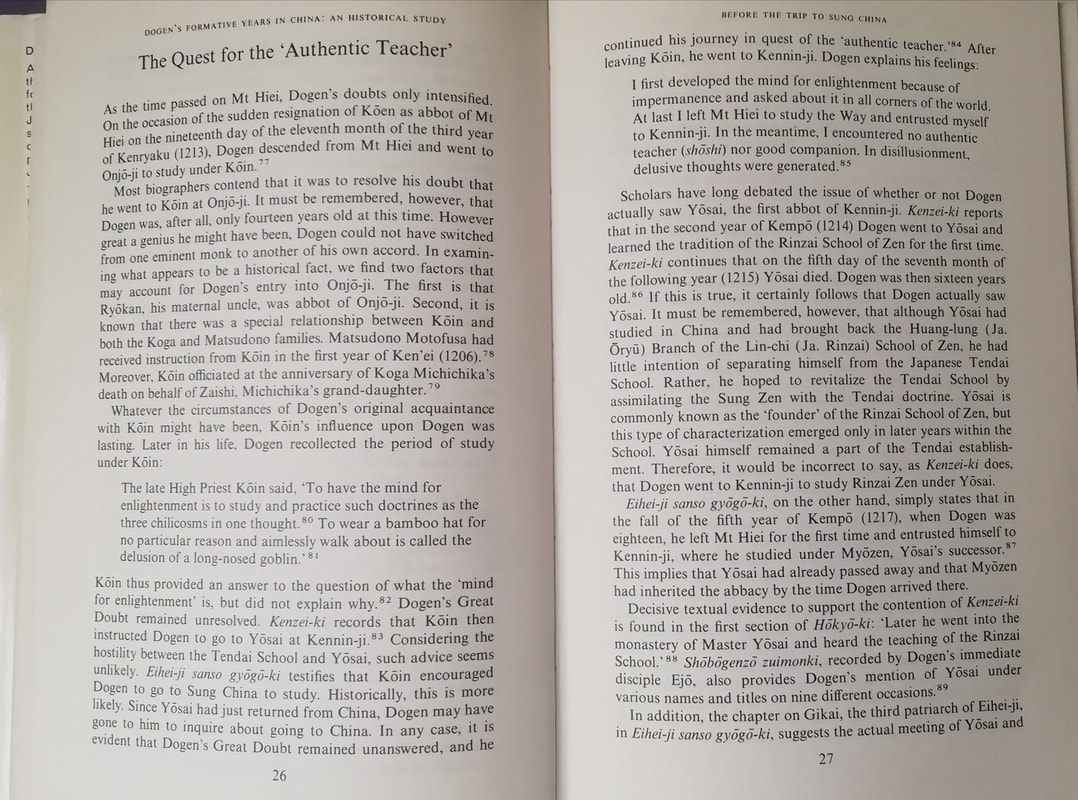
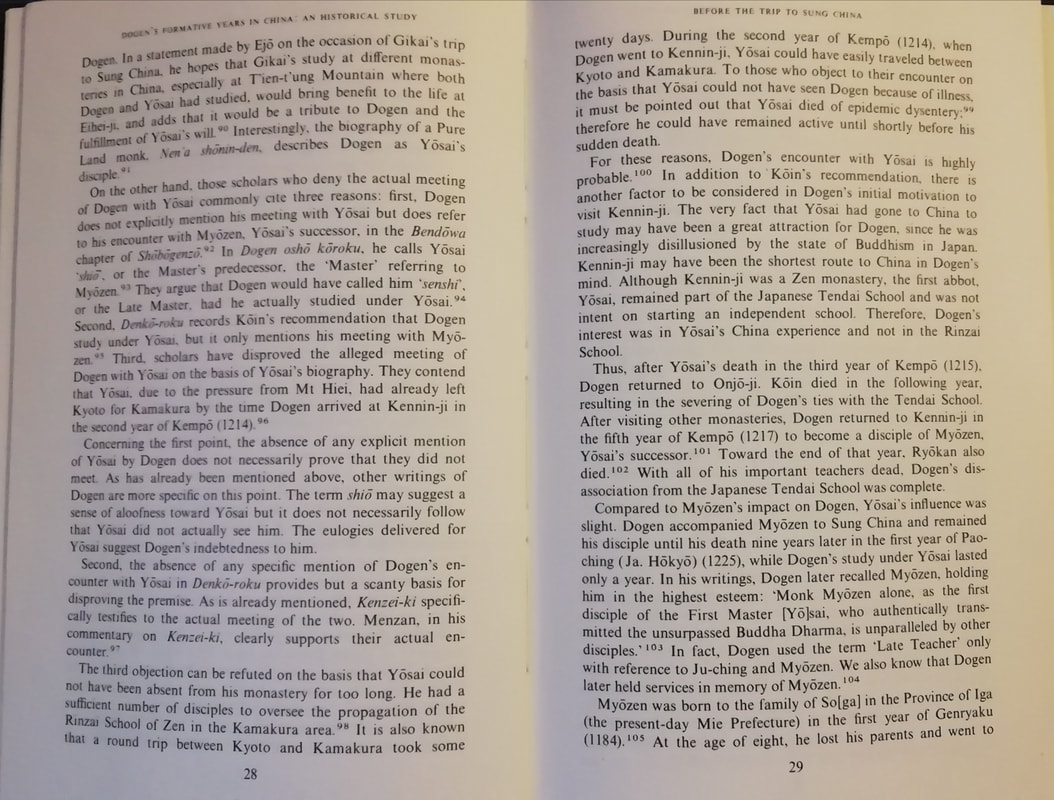
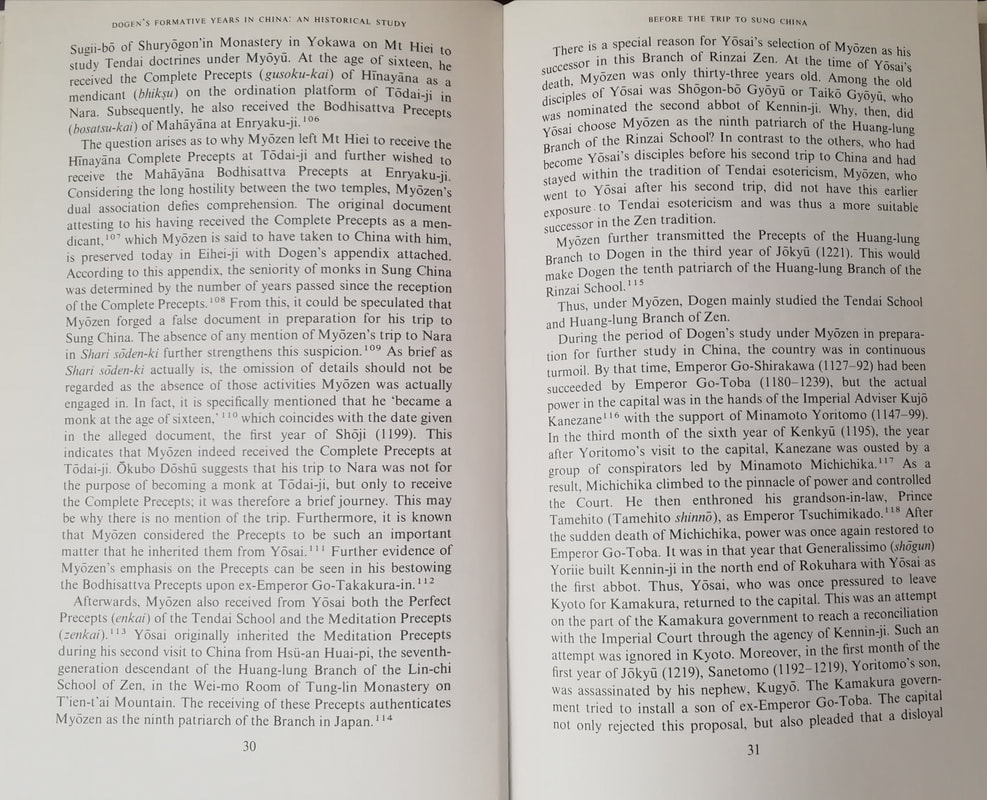
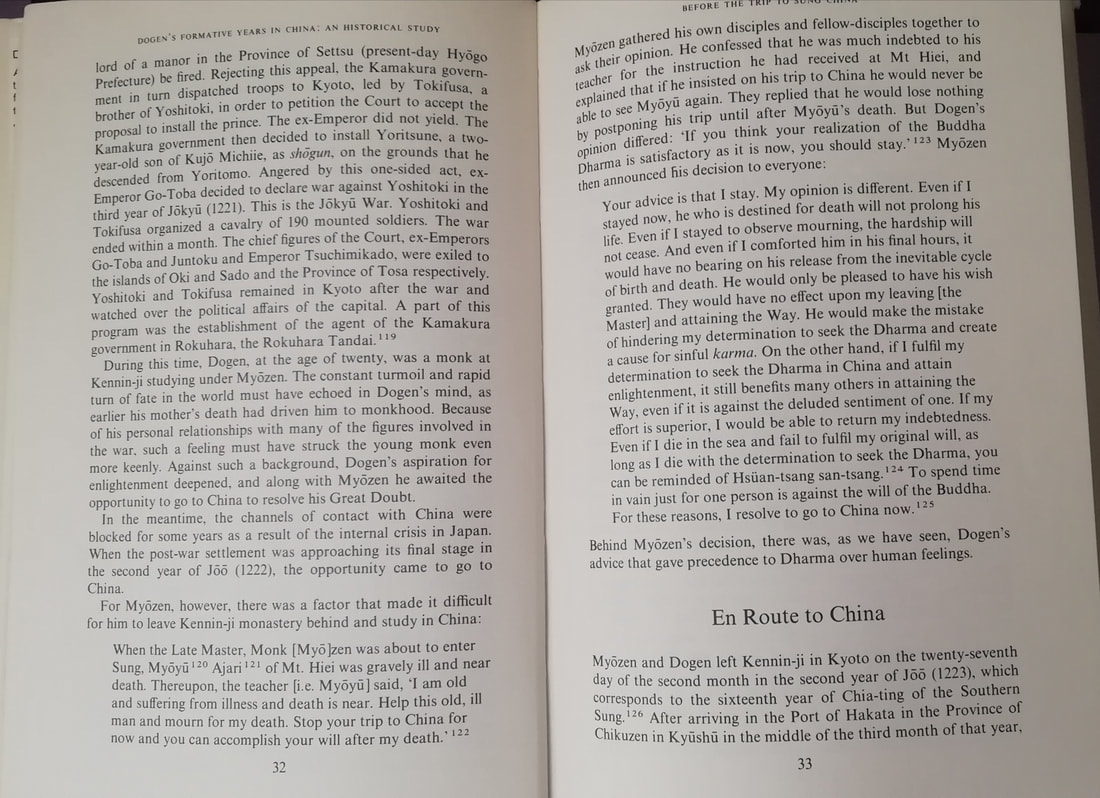
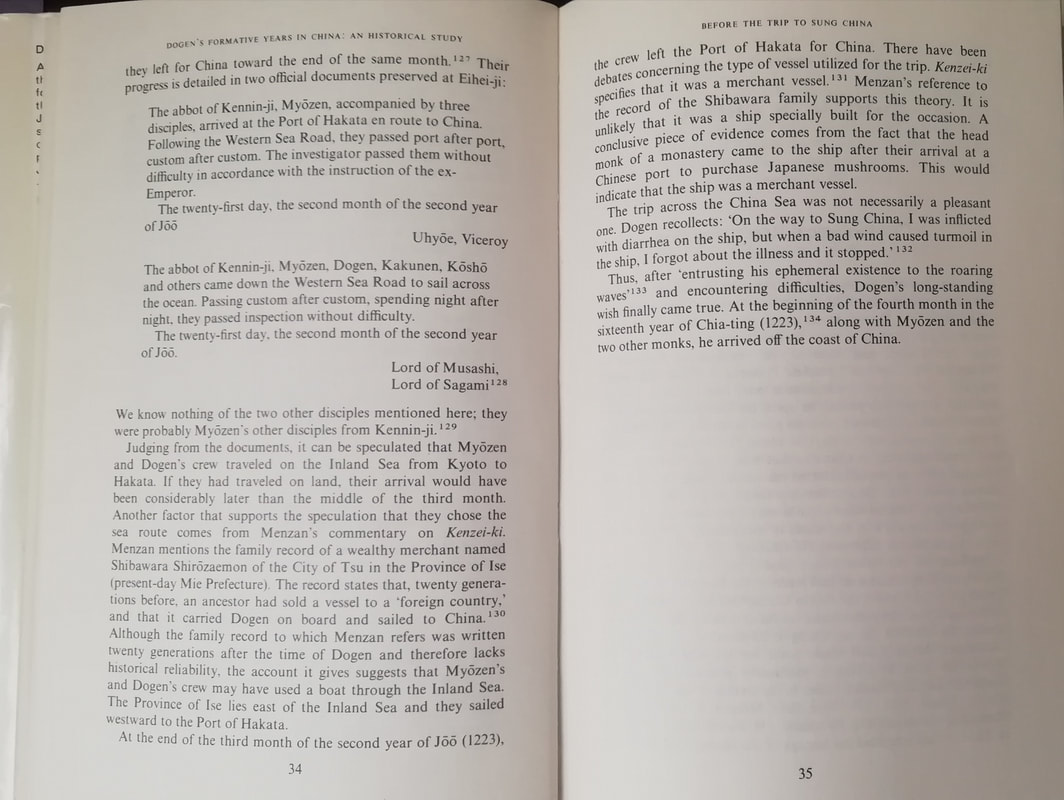
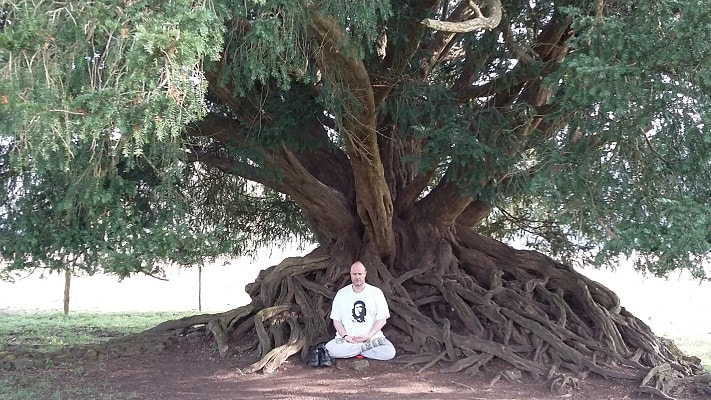
 RSS Feed
RSS Feed